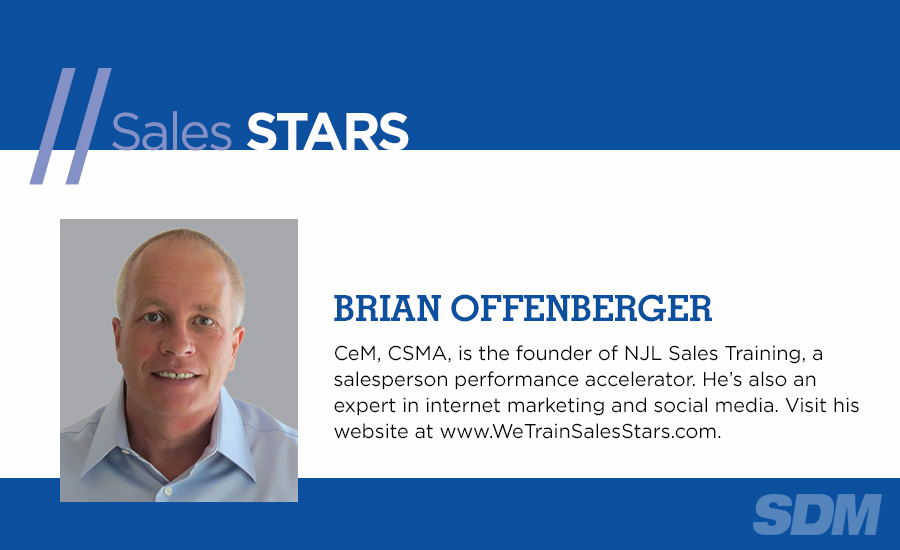A few weeks ago, at a presentation I was giving, a sales manager asked me what could be done to sell more big deals quickly. Here’s what I advised:
1. Call on big prospects. Larger companies or wealthier homeowners have more money and bigger needs than smaller prospects.
2. Obtain more referrals. The science on this issue is clear: referred deals close at higher rates, for more money and with a shorter sales cycle. Work more of them. Want more? Ask for them.
3. Get to the decision-maker early. Too many salespeople spend too much time talking to people who can’t authorize deals. Focus on those that can. You will make more sales and you will shorten the sales cycle.
4. Talk with the decision-maker in a strategic fashion. Quit talking about your products and company and instead talk about how you can help the prospect. Talk about how you can benefit them. Uncover their pain points by asking good questions. Then, offer appropriate solutions.
5. Upsell existing customers. It’s a fact that existing customers are more likely to buy — and at higher margins. At least twice a year you should analyze your existing account base for upsell opportunities. Make sure to identify other departments, divisions or subsidiaries affiliated with your customer that could use your services. How do you do that? Ask, or research online.
6. Clearly articulate your unique selling proposition. The clearer you can answer the question for the prospect, “Why should I spend my money with you instead of the other guy?” the more you will sell and the faster you will close deals. You need to be able to show how you bring value to a prospect in ways your competitors cannot.
7. Know your competition. Establish a library of information about your competitors, especially their project bidding and pricing histories. Look at their website, social media profiles, advertising, messaging — know everything you can about them.
8. Network inside the organization. I’ve seen too many security salespeople have a good relationship with only one person in an organization. That person gets outnumbered, promoted or leaves, and then trouble ensues. Single points of contact are usually a bad idea. Establish relationships with others who are involved with your issues or could be in the future. Invite them to connect with you on LinkedIn and send them information of value. Ask your contact to introduce you to others within the company.
9. Establish cost justifications early. If a prospect can’t justify the cost of a system or rationalize a feasible payback, then they aren’t going to buy. The time to focus on cost justifications is when the customer is telling you about their problems and situation. As an example, they may want to slash employee theft. A wise salesperson would ask how much was lost to employee theft while making sure the customer associated a dollar figure with the loss. If they are losing $1,200 a month to employee theft and your solution only costs $750 a month, it’s a much easier sale.
10. Proactively deal with objections. This shouldn’t be news to you. If you are certain a prospect is going to voice an objection, you should bring it up first. Deal with it and frame it under your terms before they get a chance to bring it to you. And remember — objections are buying signals. It’s better to get an objection than to have someone go dark.
Big deals happen every week in your market. Go out and find them. Work them. Close them. Serve them. You’ll make more money, have more fun, and do it all in less time.



